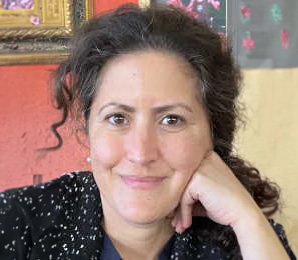
As state legislatures continue to consider laws that would ban gender-affirming care options for transgender minors, journalists writing about them should stick to reporting about the science behind medical treatments, surgical procedures and other options, said panelists during the “Covering state bans on gender-affirming care for minors” session at Health Journalism 2023 in St. Louis.
Those restrictive efforts ignore a “robust” body of research showing that hormones prescribed to trans teens who want to stop the development of unwanted physical attributes, among other medical interventions, “help [trans] people over the long term,” said Kellan Baker, Ph.D., executive director of the Whitman-Walker Institute, a Washington, D.C.-based research, policy and advocacy center focused on LGTBQ health. Baker also said that journalists should bring a critical eye to context they give when including sources who oppose gender-affirming medical care for minors to avoid spreading misinformation.
The World Health Organization and American Psychiatric Association are among organizations that define gender-affirming care as a holistic approach in providing health services to trans people. According to the WHO’s definition, for instance, it includes offering psychological, medical and social interventions to “to support and affirm an individual’s gender identity.”
Some of the reporting tips Baker and others shared had to do with vetting sources. Before interviewing researchers and clinicians who say they are experts on the health of trans people, reporters should dig into their professional history, and if they are clinicians, find out if they have transgender patients, said Baker, who is also Whitman-Walker Institute’s chief learning officer. “Just because someone says they have an opinion on the matter doesn’t make them an expert,” Baker said.
Emerald Habecker, a transgender man who started his transition when he was 15, said organizations that don’t do credible research use deceptive messages to promote their work. The Society for Evidence Based Gender Medicine and the American College of Pediatricians are among those groups, Baker said. According to the Southern Poverty Law Center, a nonprofit that tracks the activity of hate groups in the U.S., the ACP is a “fringe anti-LGBTQ hate group that masquerades as the premier U.S. association of pediatricians to push anti-LGBTQ junk science.”
Kim Walsh-Childers, Ph.D., the session’s moderator and a professor of journalism at the University of Florida, said journalists should take it a step further and “follow the money.” “Very often you can see there’s nothing objective about this group,” she said. “Not only are they not scientific, but they are pushing an agenda.”
Talking to parents who can speak with authority about their experiences with medical providers such as endocrinologists, psychologists and psychiatrists is critical to explaining how the transition process works, said Alyse Lancaster, Ph.D., chair of the department of strategic communication at the University of Miami. Lancaster, who said her son revealed he was transgender when he was 14, said parents and medical providers who have been supportive of transgender children and teens understand the science-based transition protocols that ensure that minors and their families make the best decisions for their children’s physical and emotional health.
“It doesn’t happen overnight,” said Lancaster. “Just like you can’t walk into a CVS and get testosterone and estrogen, you can’t just walk into a hospital and say, ‘hey I want my body parts cut off,’” as many anti-trans politicians want people to believe Lancaster said.
Habecker and Tony La Mantia offered nuances journalists should be aware of when reporting about the bans on gender affirming care for minors. For example, parents may not accept that their children are transgender people. Insurance companies may not cover medications and procedures. Pharmacies may not stock medications trans people are prescribed or the supplies to take their medicines. And trans adults who transitioned as teens may not want to talk about their medical history.
In sharing the hardships they went through in their transition, Habecker and Lamantia suggested that stories about gender-affirming care for children and teens should address the toll that delaying care takes on their mental health. Lamantia said his parents were blind to the emotional distress he was going through as a teen, and “they were making decisions based on fear.” Habecker, 22, said he has many friends who have “known that they are trans for as long as they can remember,” want to medically transition, but their parents won’t let them.
“If I had to wait till I was 18 to start testosterone, like, I don’t know if I would be alive,” he said.






